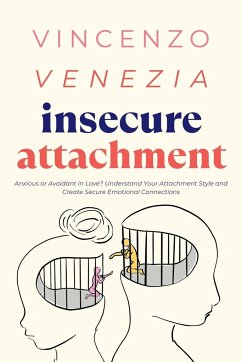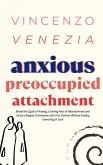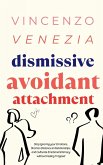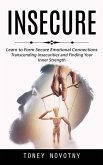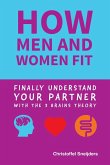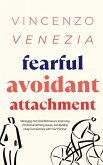Do you often find it challenging to maintain successful romantic relationships? Are you trapped in a cycle of repeating behavior patterns in your relationships, haunted by the fear of heartbreak? What if you could predict the probability of your relationship's success or failure beforehand? Relationships are complex. They are made up of emotions, dreams, and shared experiences. But they are also made up of subtle nuances and underlying currents that we may not notice. At the heart of every relationship is the attachment bond. This is the deep emotional connection that shapes how we love, trust, and connect with our partners. When the attachment bond is secure, it is a strong foundation for our relationships. It allows us to communicate openly, be emotionally intimate, and feel safe. But when insecurity creeps into the attachment bond, it can act like a silent intruder. It can weave its way into our relationships without us realizing it. Insecure attachment can be like a ghost from our past. It can influence our perceptions, reactions, and expectations in our relationships. It can stem from early childhood experiences, especially those involving our caregivers. Unresolved attachment issues can lie dormant for years. But they can resurface when we least expect them, causing misunderstandings and turmoil. Ignoring insecure attachment can be a mistake. If we are not aware of the invisible forces at play, we may misinterpret our partner's actions. We may react defensively or withdraw emotionally. Communication can break down, and trust can erode. This book is recommended for people who are experiencing any of the following in their relationships: Dissatisfaction and high conflict: Constant arguments, disagreements, and feelings of dissatisfaction within the relationship. Obsessiveness, intrusiveness, and jealousy: Feeling possessive or overly controlling, constantly checking on your partner, and experiencing jealousy over minor interactions. Mistrust and suspicion: A pervasive lack of trust in your partner's intentions and actions, assuming the worst without evidence. Fear of rejection and abandonment: An intense fear of being rejected or left by your partner, leading to clingy or needy behavior. Desire for fusion and fear of intimacy: Struggling to maintain personal boundaries and desiring excessive closeness, while simultaneously fearing true intimacy and vulnerability. Emotional distance and avoidance: Withdrawing emotionally from your partner and avoiding deep emotional connections. Low level of emotional involvement: Feeling emotionally detached or numb in the relationship, unable to fully engage or express feelings. Intimacy issues and difficulty in sexual relationships: Struggling to connect intimately with your partner, which can manifest in physical and emotional intimacy challenges. Constant need for reassurance: Frequently seeking reassurance from your partner about their feelings and commitment. Emotional hypervigilance: Being overly alert to potential signs of trouble in the relationship, always on the lookout for signs of rejection or betrayal. The patterns and beliefs developed during childhood can be unlearned and replaced with positive approaches, paving the way for a constructive life journey. Understanding how to overcome attachment issues can be one of the most rewarding and transformative things you can do for yourself. If you are tired of complicated and painful relationships, this book will be a great help to you and your loved ones.
Hinweis: Dieser Artikel kann nur an eine deutsche Lieferadresse ausgeliefert werden.
Hinweis: Dieser Artikel kann nur an eine deutsche Lieferadresse ausgeliefert werden.

